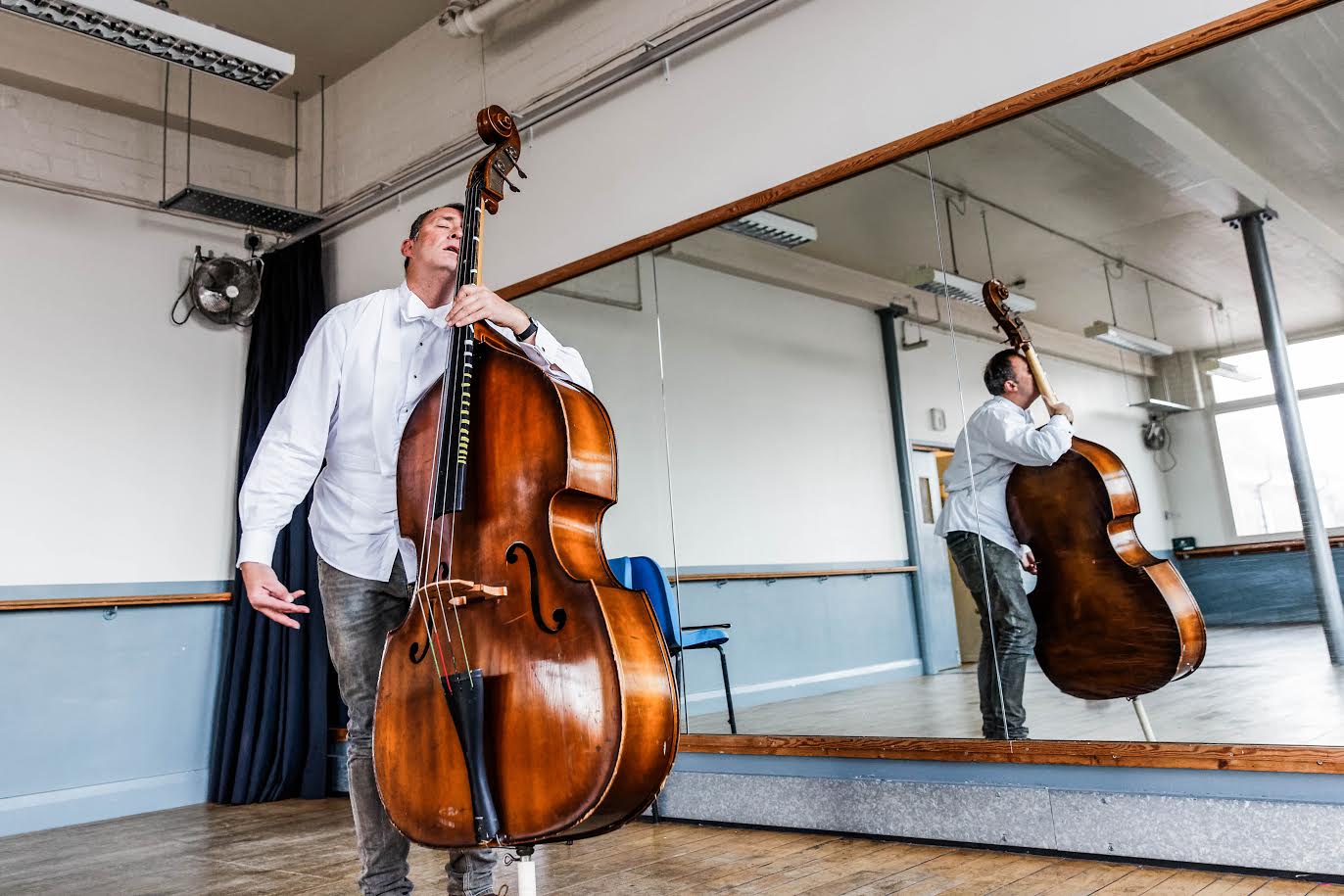
This is a real old-fashioned play, a one and a half hour monologue with a short break in the middle not relying on theatrics or gimmicks.
The script is erudite and varied. Like Alan Bennett’s Talking Heads, this play was originally written for radio, but the presence of the double bass adds a whole other character. The exploration of a man frustrated in his career, his physical and his social life set in a soundproof room with a sack proof job is completely convincingly portrayed by Paul Currier. He starts reasonably with a wry history of the bass and, as he slowly drinks more, moves from his love of the instrument to his hatred of it. Meanwhile the double bass watches over him in a malevolent way, even, so he says, in his vain attempts to have relationships. He is protected by his room and his job but also imprisoned by them. This was a universal theme in the 80’s and probably still is now. How many musicians who were stars in their school and their college presently sit in the back row of an orchestra frustrated and often drunk? Frank Zappa’s big complaint about the LSO was the presence of the open bar available to all the players, so that he could neither get them to work or perform properly.
The set manages to reflect all this. It looks elegant in an 80’s way with the beautiful bass in the middle of the room and the hi-fi and records in the background. As the beer bottles appear and the bass moves off its stand, the elegance is lost and the disintegration of the psyche is reflected in the set. In the same way the bassist ‘s obsession with the young petite mezzo-soprano brings the double bass more into play until he is nearly making love to it.
It was of course originally a German play with I am sure some jokes about the German psyche. The excellent translation by Michael Hoffman gives a feel of this but also makes it universal. Of course, it relies on the performance of the actor and Paul Currier is excellent. He looks the part, the clothes, the hair, everything. He has been directed well and manages to bring changes of pace and he combines both humour and pathos in his performance. He is totally believable and in the end puts on his black tails and goes off to perform despite everything.
It is always a hard ask to expect an audience to sit in a theatre listening to one person for over an hour but this play and this performance are strong enough to do it. ★★★★☆ Keith Erskine 3rd November 2016
Photo by Craig Fuller

